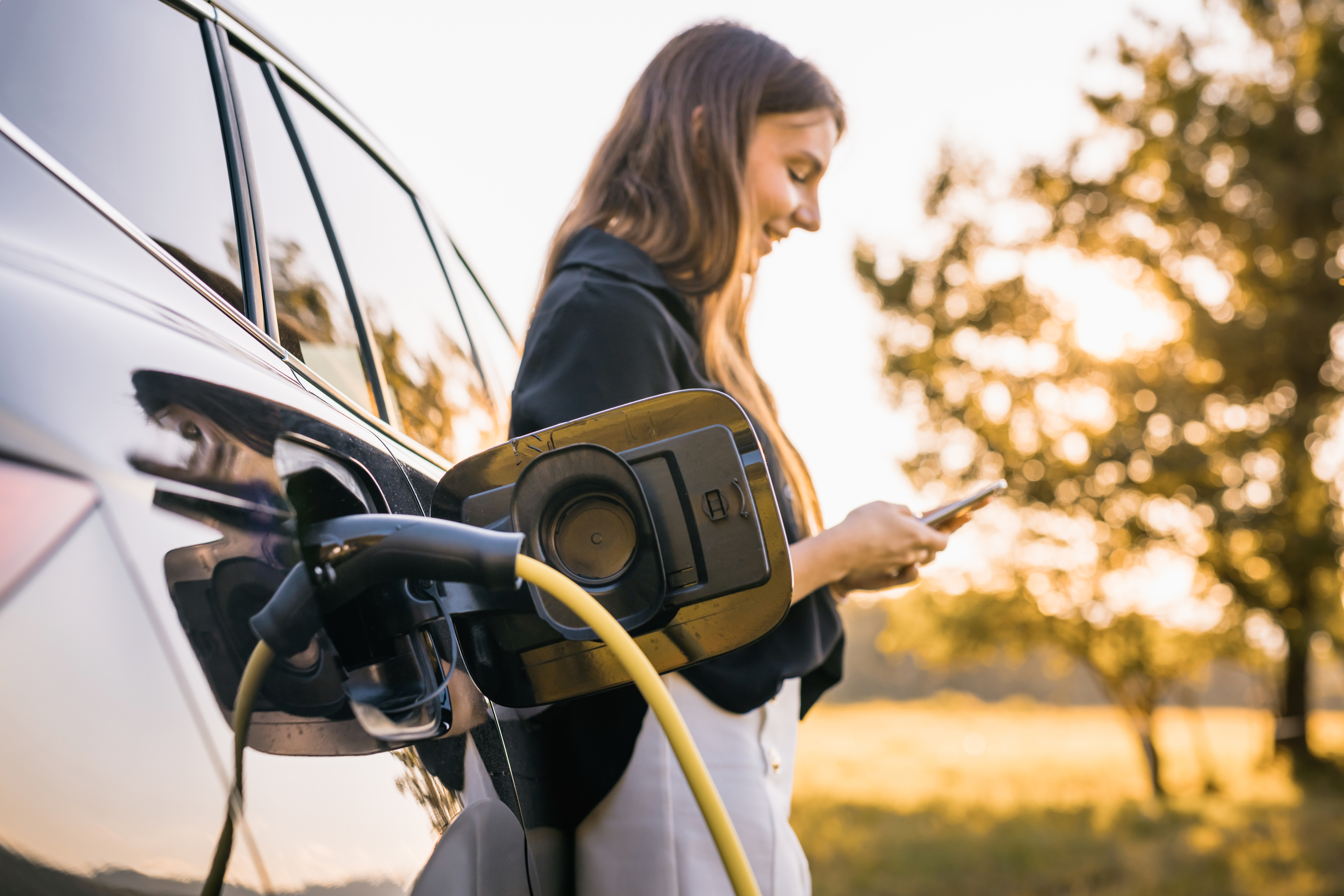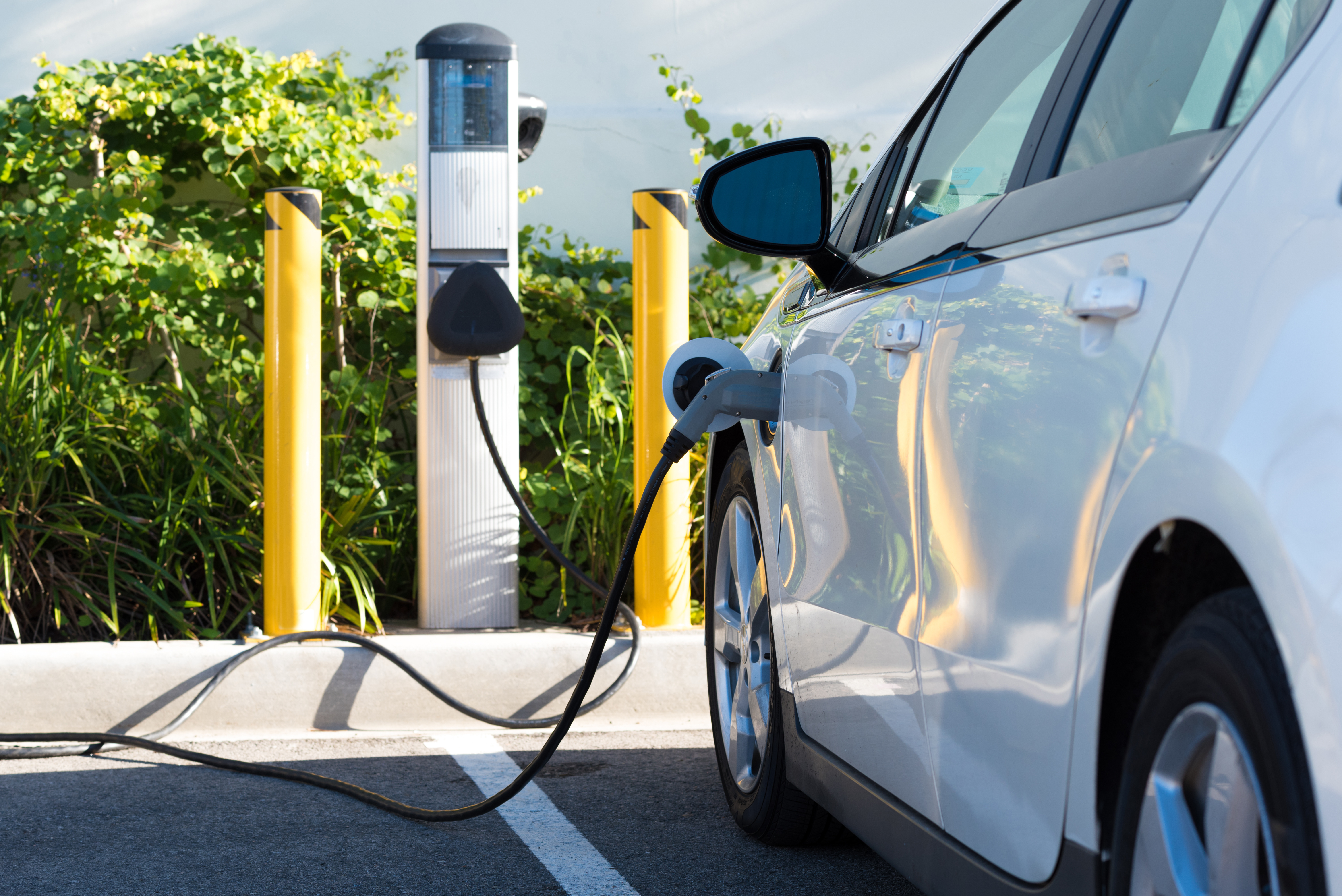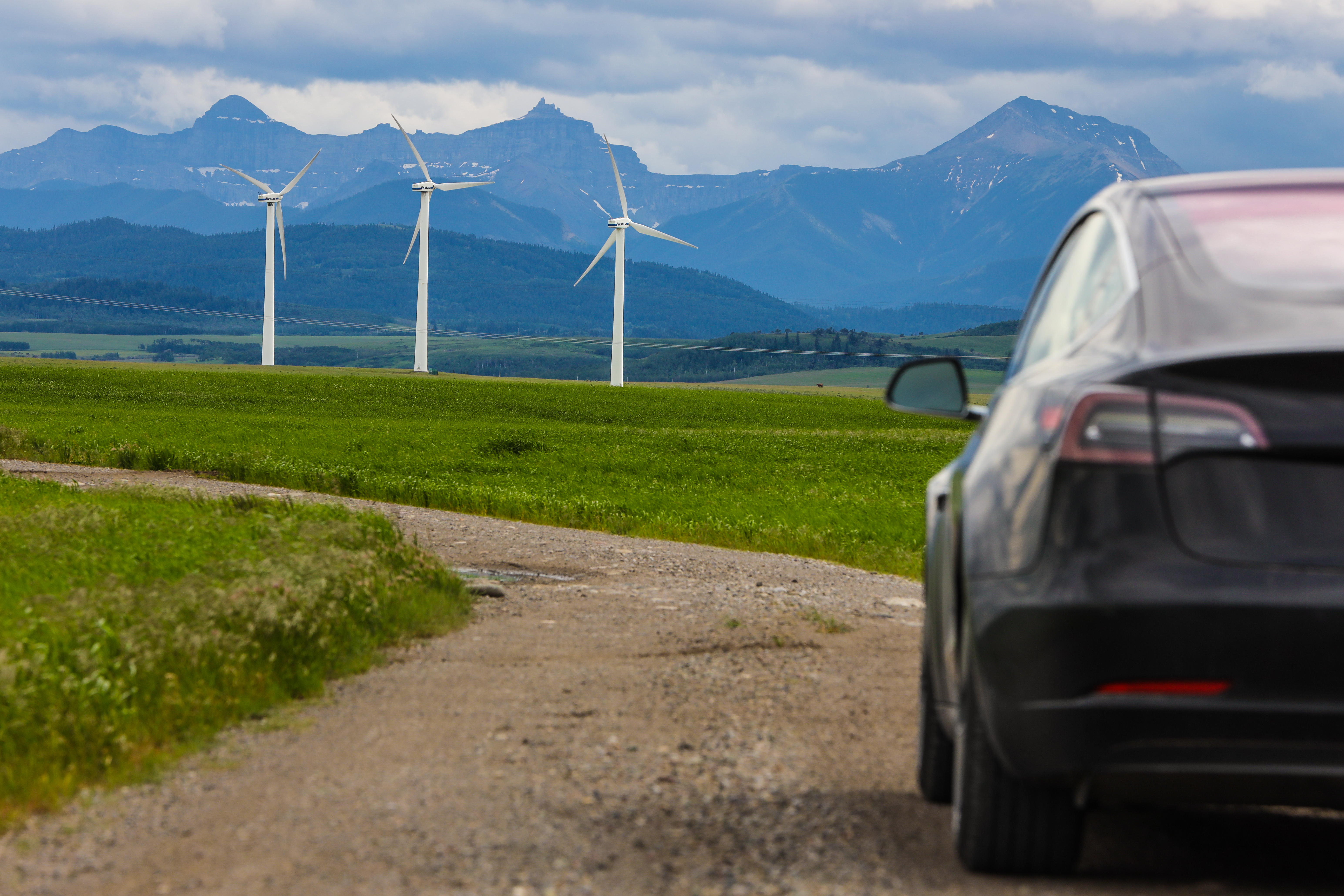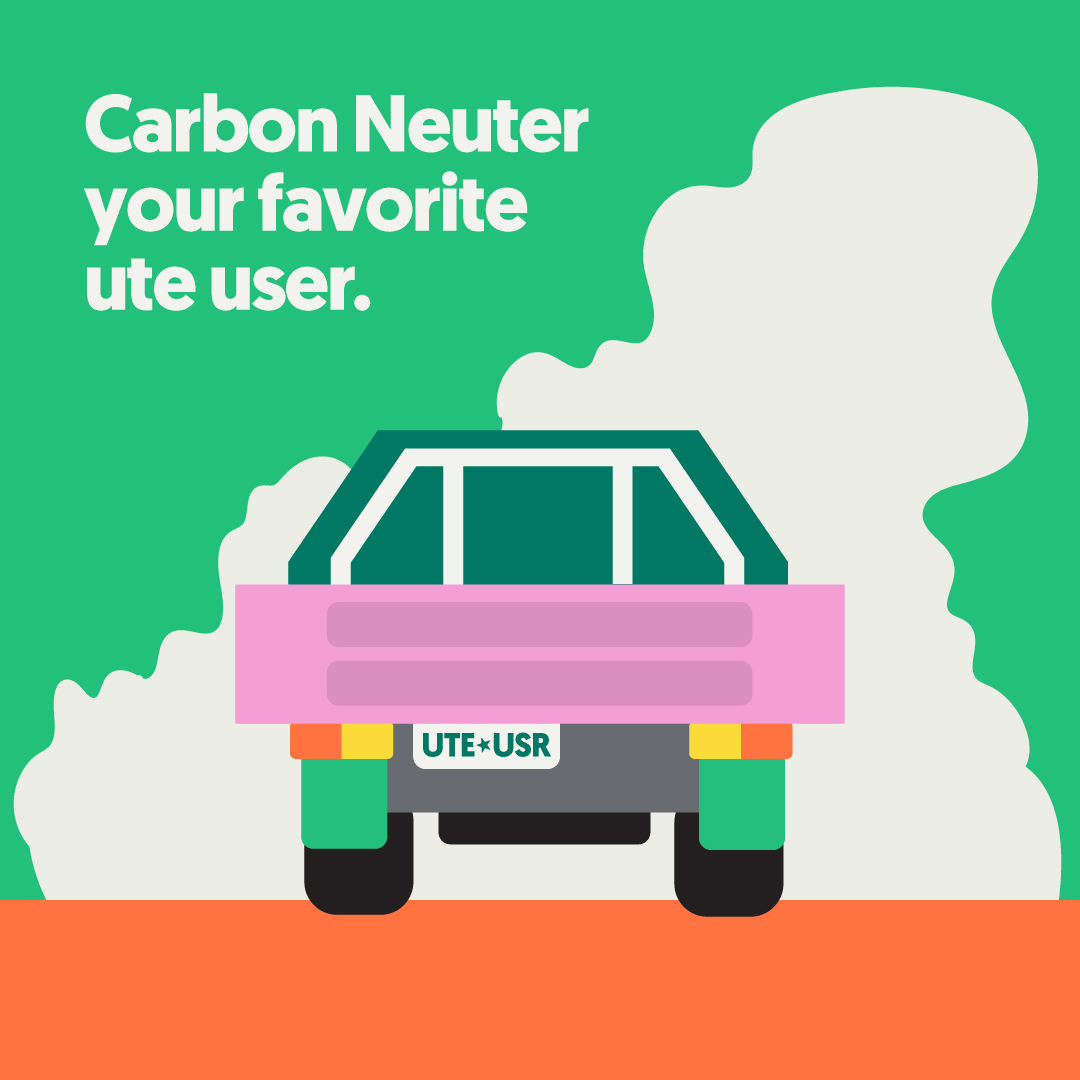The GoodyGood Blog
Should I Buy an EV?
Fun fact: In July this year, electrified vehicles (hybrid, plug-in hybrid and battery-electric vehicles) outsold internal combustion engine (ICE) vehicles for the first time ever in New Zealand. Battery-electric vehicles (BEVs) made up over 27% of new car sales that month. We’re pretty stoked about that!
Cars and other passenger vehicles make up about 27% of New Zealand’s emissions, so deciding whether to buy an EV has become an increasingly relevant question for people who want to lower their carbon emissions.
While the transition from ICE to EVs might seem like a no-brainer when you’re thinking about a whole country, it becomes a bit more real when you’re trying to work out what to do as an individual. It’s a crazy-complex topic and everyone’s situation is different. Here’s some thoughts about the benefits and considerations of switching to an EV…

Benefits of buying an EV
Environmental Impact: One of the main reasons to buy an EV is that the environmental impact is way lower than your average petrol or diesel vehicle. EVs produce zero tailpipe emissions because they don’t burn fossil fuels, and they contribute to cleaner air quality in urban areas. The emissions involved in making an EV are higher than for a petrol car, but the emissions payoff is pretty quick once you start driving it, especially if your electricity mostly comes from renewable sources, like they do in New Zealand. Hannah Ritchie has done an amazing job of crunching the numbers on this topic. Pro tip - buying an EV with a smaller battery is better for the planet than buying one with a big battery.
Cheaper to run: EVs are more energy efficient than ICEs, which means they’re cheaper to run. Electricity is generally a cheaper form of energy than petrol or diesel, and EVs use less of that energy to move. Most of them require less maintenance because they have fewer moving parts.
Zoom zoom: EVs are known for their speedy acceleration and instant torque, which makes for a silky smooth and fun drive.
Never go to a gas station again: If you can keep your EV charged up by plugging it in at home, you’ll never have to go anywhere to refuel it. Goodbye gas station.
Financial incentives: The New Zealand Government offers rebates of up to $7,000 for buying a fully electric vehicle. That’s a nice chunk off the bill! On top of that, a number of banks are offering special ‘green’ loans or home loan top-ups at cheaper rates for things like EVs and home solar panels.
Tech wizardry: The EV industry is evolving all the time, with really quick developments in battery technology, charging stations, and autonomous driving capabilities. Some EVs can deliver a good amount of power from a built-in power outlet, so you can plug some appliances off them when you’re camping, or at home if there’s been a power cut. Some of them even make futuristic sounds created by movie composers. Owning an EV is basically like living in the future.

Considerations before buying an EV
OMG so expensive: While the running costs of EVs are lower, the initial price is higher than an equivalent petrol car. There isn’t that much choice for older, secondhand EVs either, so if you’d normally be looking at a secondhand car, you quickly find yourself at price points that are way higher than you would normally consider. Especially if your fam and floof don’t quite fit in a Nissan Leaf.
EV prices are slowly coming down though and, depending on how much you drive, the amount you save on fuel and maintenance can help recoup the upfront cost. Check out the Gen Less Vehicle Comparison Calculator if you want to weigh up your options.
It’s another thing to charge: If you’re one of those people whose phone seems to be constantly low on battery because you forgot to plug it in at night, then owning an EV might be a challenge. Charging technology is improving, but charging it on the go takes longer than filling your car up at a gas station. Fast-charging stations can provide a decent charge in a short time, but for longer charges, you'll need to use your noggin to avoid getting caught short. Or charge it at home.
Charging Infrastructure: Access to convenient and reliable charging stations is crucial for EV owners. While charging networks are expanding, you do need to think about where you can charge up, especially on longer trips. Demand can be high in peak holiday season too. There are plenty of apps to help you out though, and for day-to-day stuff, home charging solutions - like installing a Level 2 charger - can be a total game-changer.
Range Anxiety: Range anxiety is the fear of running out of battery while driving, which is a pretty gnarly situation. Modern EVs have made epic strides in extending their range, but it's still important to plan longer trips and consider charging locations along your route.
Battery Degradation: Over time, an EV's battery capacity will degrade, resulting in slightly reduced range. However, most manufacturers offer warranties that cover a certain level of battery degradation, so it’s less of an issue than you might imagine.

So what to do?
Whether to buy an EV or not depends on what works best for you. There’s heaps of factors, like how much you drive or need a car, budget, and location. While EVs offer all kinds of benefits, they also cost a lot to buy and the options available might not do the things you need your vehicle to do.
If you want to reduce your transport emissions, and are short on cash, there are loads of other ways you can reduce your climate impact. You could replace your car with something cheaper that just uses less fuel, like a hybrid, and replace some of your driving time with cycling, walking or public transport. Or if you live in an urban area, you could replace your car with an e-bike and rent an EV when you need a car.
Making progress that’s sustainable for you and your pocket is still progress. If buying an EV isn’t on the cards for you yet, keep adding the little things that are achievable, like cutting out short car trips, biking, busing or bi-pedalling (walking) more. Every little bit helps!
By the way - if you do have a human in your life who will need to have their fossil fuel car pried out of their cold, dead hands, did you know we can help you offset their ute for them?

See more blog posts